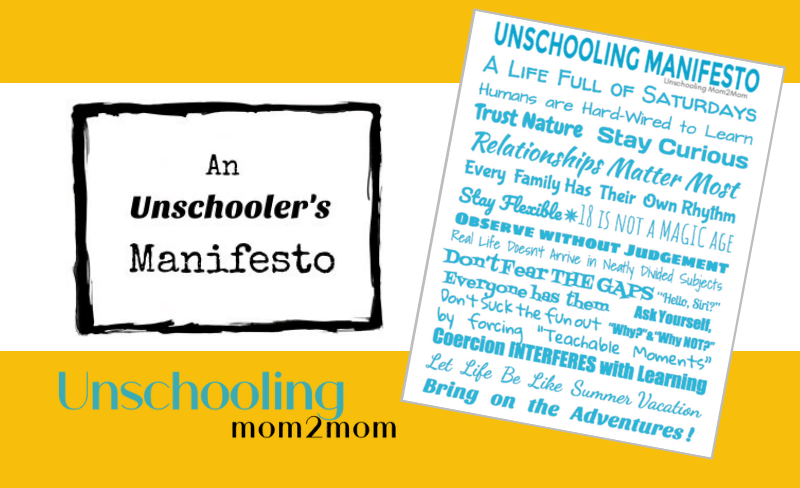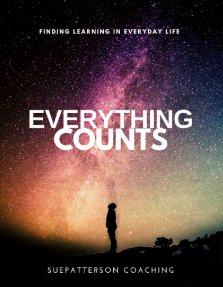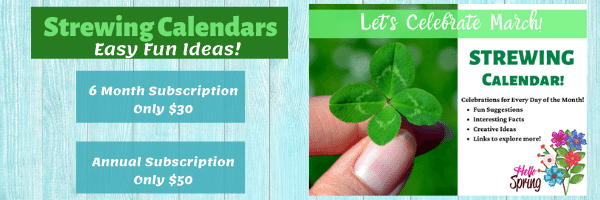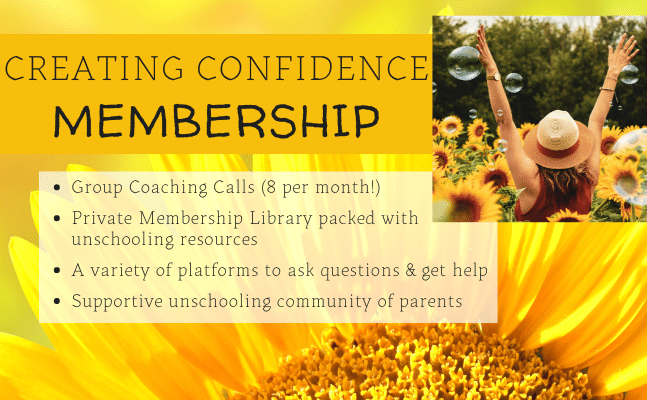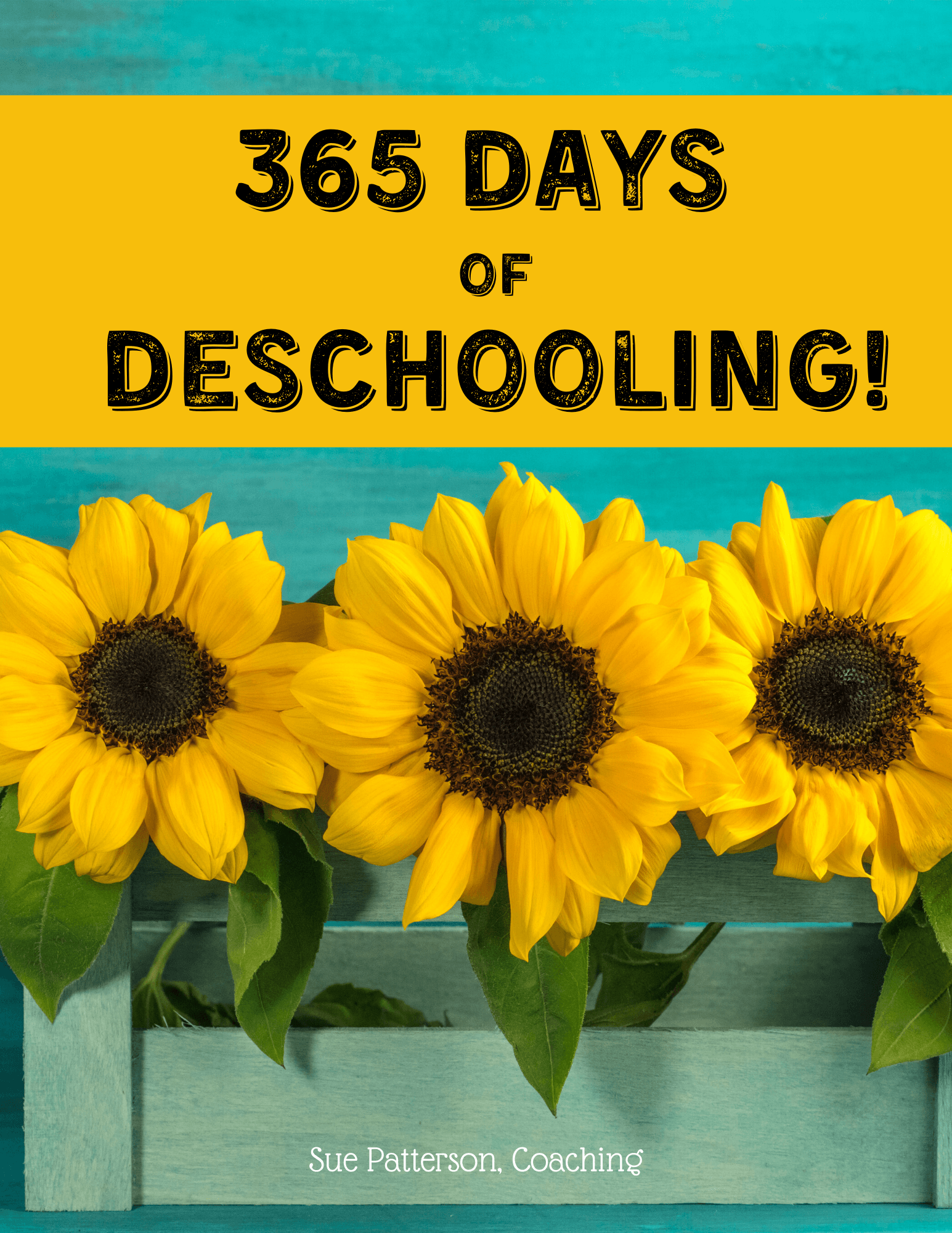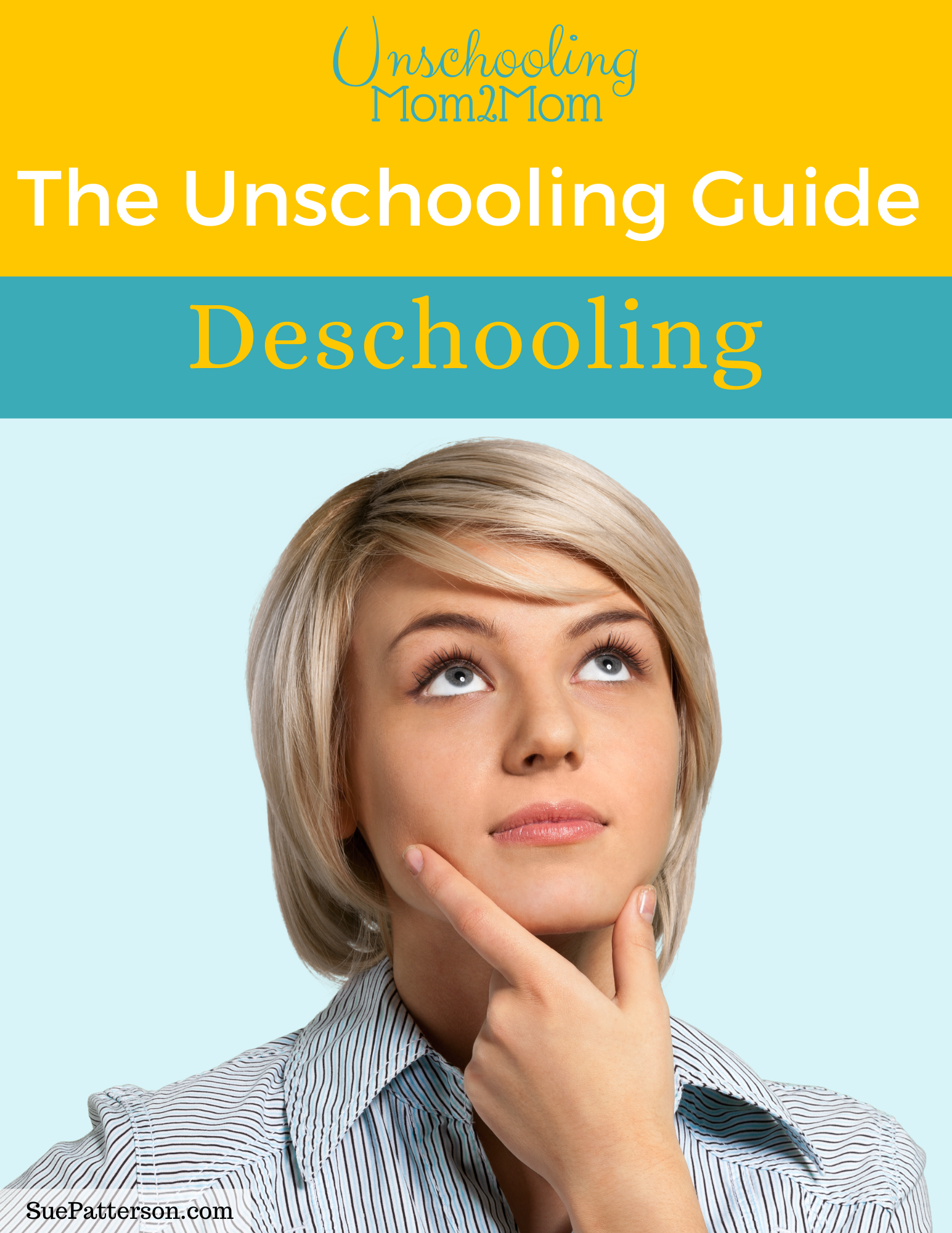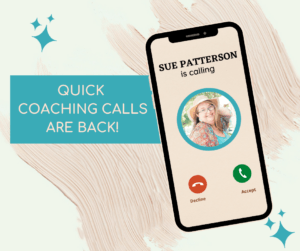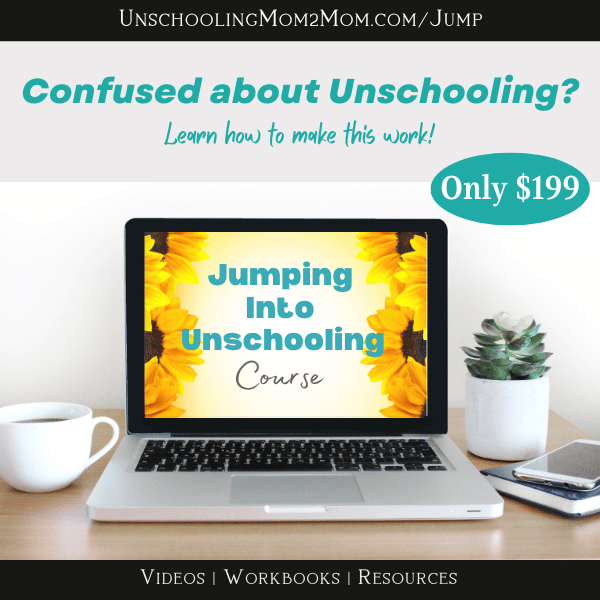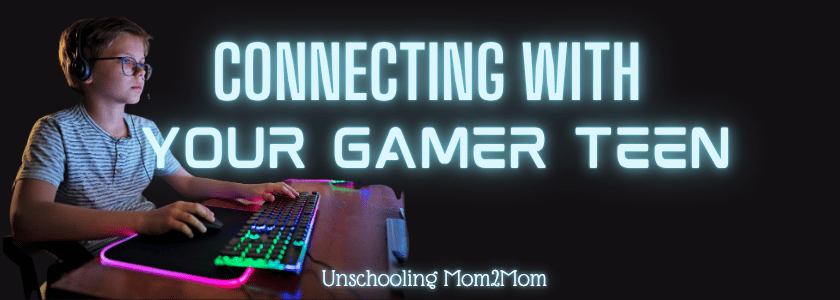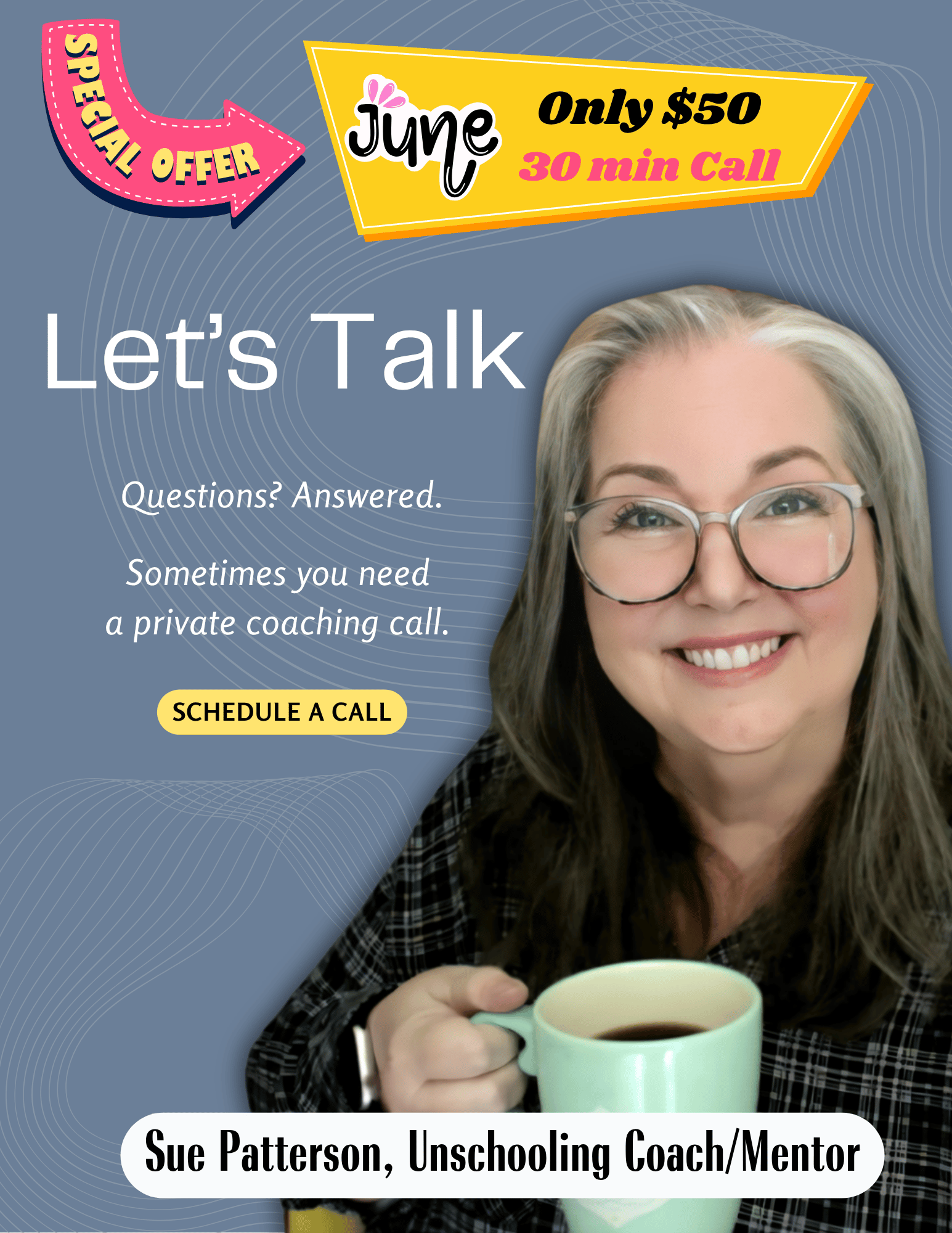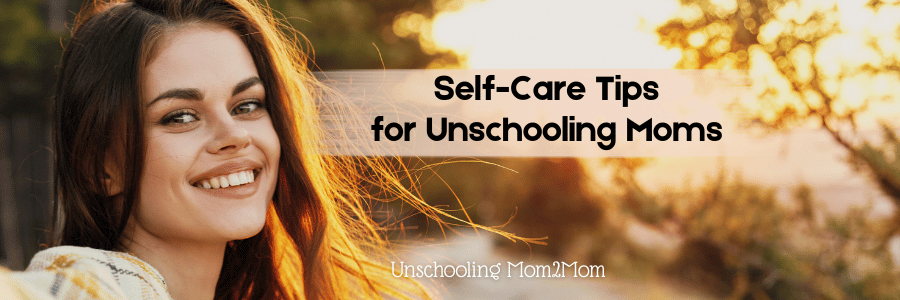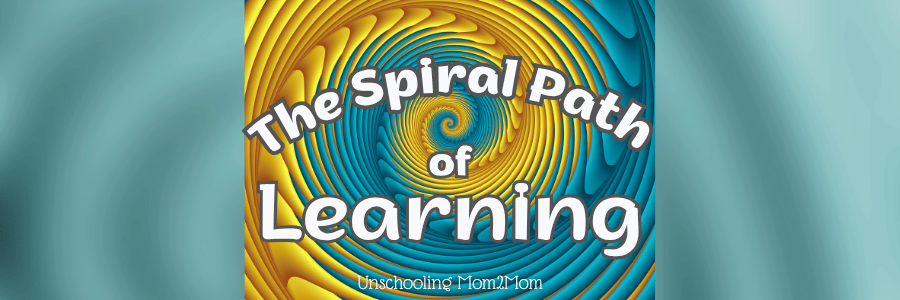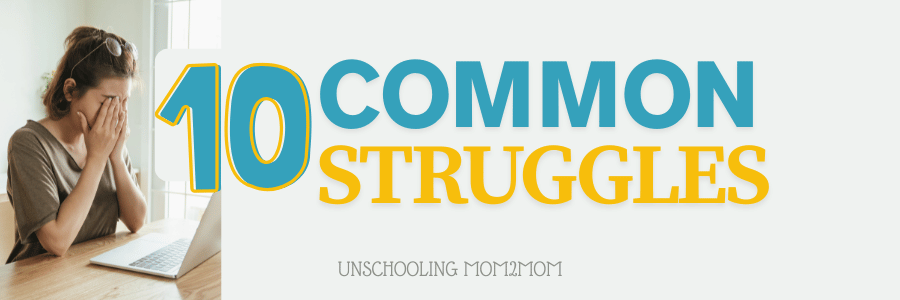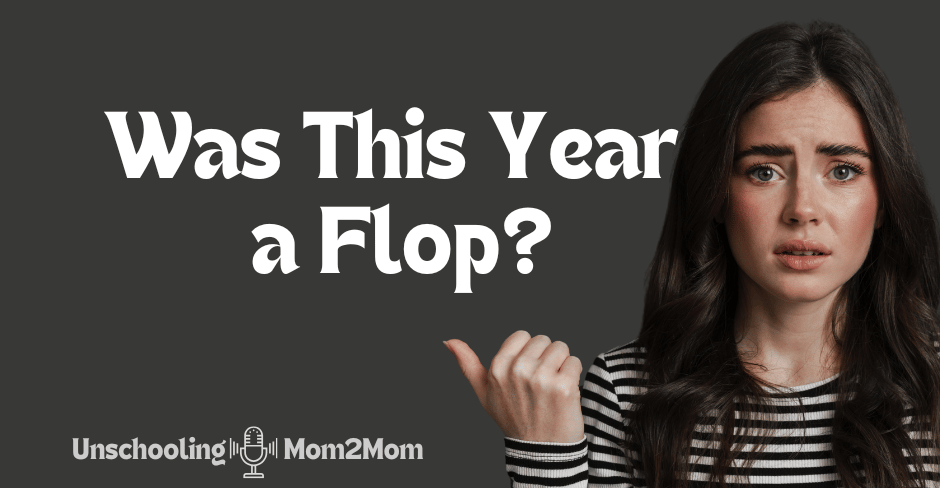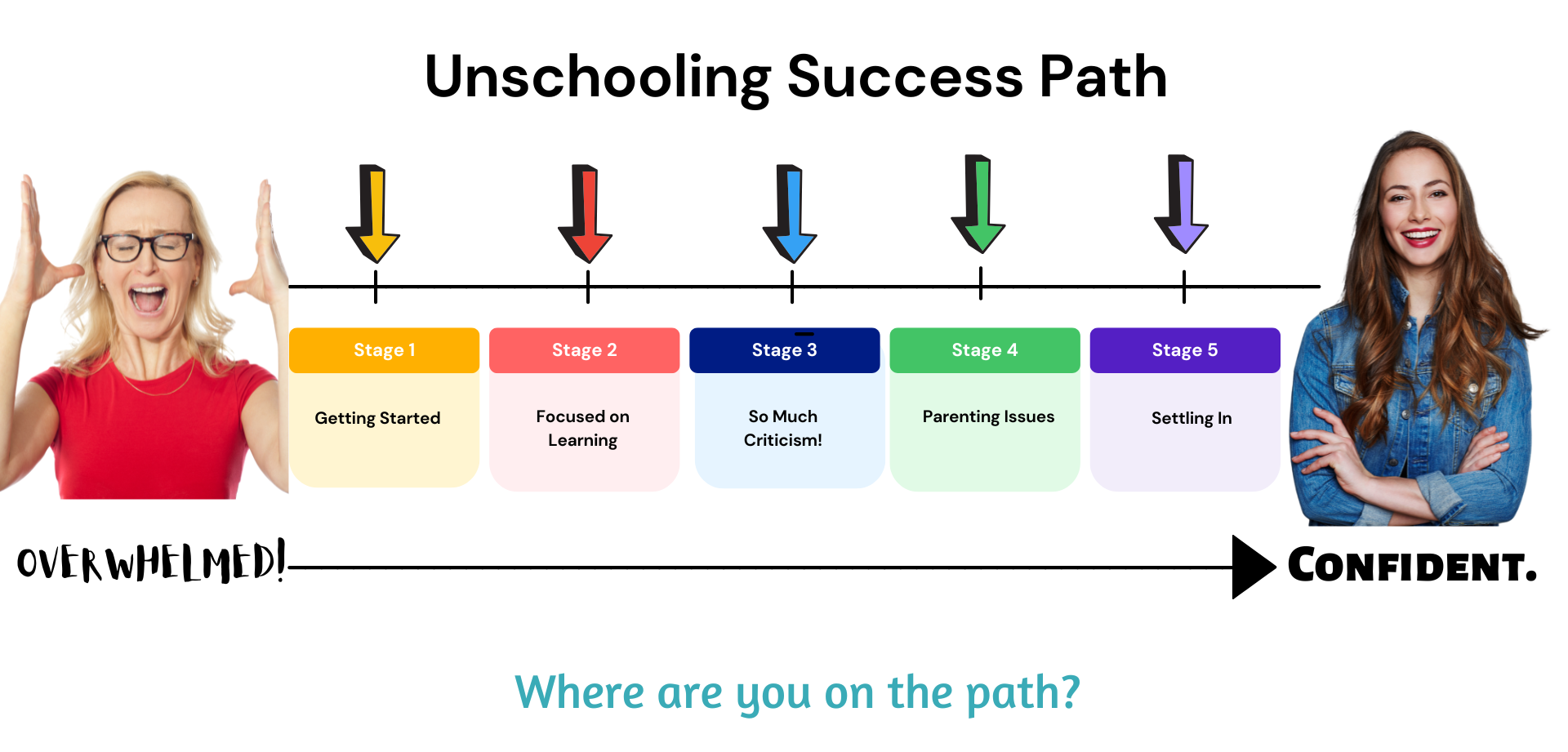An Unschooling Manifesto
Podcast Transcript
Hi Everyone! Welcome back to Season 2 with the Unschooling mom2mom podcast! I’m so glad you’re here.
I’m sure you saw the title for this first episode of season 2:
Your Unschooling Manifesto.
You could modify it to be your own Family Manifesto too.
All that word, Manifesto, means - is a statement of your beliefs.
And I think that’s a great way to build your own confidence as you embrace unschooling - because that’s MY goal here. To help you feel stronger about your decision to unschool. I want to offer you information and support so you can be successful too!
We’ve just come off of our month-long birthday celebration with all the Pattersons! My kids are now officially 33, 31, and 28. And they’re all thriving in their adult lives. Truth is, I made a lot of mistakes as I was finding my way unschooling - and that’s why I’m here - to shine a light ahead of you so you can avoid some of my missteps and learn from my 25 years of experience.
That’s why a Manifesto is a cool idea.
It gives you clarity.
Think about the question,
“What do you believe?”
And then articulate your core beliefs.
When you do this, you’re better equipped those days that don’t go well, or when someone questions you and you stumble in your response. (we’ve all been there!)
Last year, I did a podcast about Fears. It’s #9
If you haven’t listened to it, it’s worth going back to do that. I’ll link to it in the blog and show notes.
For this episode, you can simply listen and ponder.
Or you can go grab a notebook and pen - or open a google document.
I’ll list out what I put on MY unschooling manifesto.
You might completely agree and add it to your own manifesto.
Maybe you had thought of it before - or maybe it’s a new concept!
But you agree. Add it to your list.
But maybe you hear it and you have some questions about it.
These will be your Flags or Indicators that tell you to go back and look into it a little more.
- You can do this by using the UnschoolingMom2Mom.com website.
- Or find an Unschooling Guide that will tackle that subject in depth.
- Maybe you’re in the Membership group and you’ll bring it to a Group coaching call.
- And we can always hop onto a call with me to talk it out privately.
All of these are options.
I encourage you to do this because it will strengthen your resolve.
It will stop the second-guessing - or at least slow it down considerably.
When we’ve thought things through, we’re less likely to create the house of cards that gets knocked down with the first strong breeze. The transcripts here at the website will have some resource suggestions for you - so you don’t have to go searching for ways to strengthen your foundation. I’ll help you!
Here are 25 Ideas that are on my own Unschooling Manifesto.
Listen to each one and then pause the podcast when you hear this sound.
→ Think if you want to add it to your own list, or look for more info about that particular point.
→ Pause now, gather your stuff so you can start your own manifesto, and we’ll dive in together.
Great! I’m ready...
Lets start with this:
1.) The world does not need to be divided into Educational and Non-educational activities. Everything is educational!
Ebook: Everything Counts
This ebook shows - subject by subject - where learning happens in everyday activities. While it was written originally for parents of teens, many of us have fears about how unschooled kids will manage when those teen years roll around. Seeing the learning happening everyday will help you not be concerned as much when those "high school" years come around!
2.) Relationships Matter Most. Your relationship with your child matters more than worksheets, banana peels on the floor, what time they go to bed, or when they learn to read. Actually, nothing is more important than the relationship. Consider whether your words and actions make this really clear to your children.
Read/Listen: What Really Matters
3.)
You don’t have to artificially divide the world up into subjects. One thing really does lead to another when learners (children and adults) follow their interests.
Get this Free PDF:
Rethinking Subjects

4.) Figure out what your family’s rhythm is – and recognize that it may change over time. And! It may not look like someone else’s rhythm. But that’s the beauty of truly being able to individualize for your family too! You won’t always be mad that they aren’t fitting into someone else’s mold.
Read/Listen: Structure, Schedules, & Unschooling
5.) Be curious about the world yourself. Invite your kids to be curious with you. Support them as they begin to wander with their own curiosities.
6.) Be Interested … and Interesting. Unschoolers focus on living a rich, stimulating life with their kids. It’s ok if you need a little help getting creative here. I have some ideas for you at the website.
7.) Role model critical thinking skills. Examine marketing that comes their way. Think about who benefits from getting you to agree with them. It’s ok to agree or buy things - but help them see how it’s helpful to be thoughtful and intentional, instead of getting swept up in the moment.
8.)
Teaching vs. Learning. Unschoolers recognize that the schoolish ways of lesson plans, curriculum, assignments, quizzes or tests, required memorizing, and grades are totally unnecessary and more about the “teaching” than the “learning.”
If you’re in the membership group, I have a great PDF that helps with this.
Read/Listen: Reframing Teaching/Learning and Unschooling Partnership
9.) Don’t suck the fun out of something by turning it into a “teachable moment.” Take your cues from your kids – a little conversation about it may be all they were looking for. Sometimes we need a little more deschooling here.
10.) Create a support system for yourself – people you can turn to when you’re not sure what you’re doing is working. Local is great, but these past couple of years have shown that an online community can be so helpful too.
Our Online Community of Unschooling Parents
11.) You don’t have to use the term “unschooling” if it bugs you. A lot of options exist. And you may use different terms when you talk to different people – based upon their level of understanding. “Homeschooling” is fine for friends/family who don’t know what the heck you’re doing! Unschooling, at it’s simplest definition, is a homeschooling method. But if you want to call it Whole Life learning, or say,
“We’re doing an experiential, individualized approach to learning,” ...that works too.
12.)
Do everything you can to stay focused on TODAY… don’t beat yourself up about screw-ups in the past, and don’t play the “what if” game about all the things that could go wrong in the future. Today’s data gives us the information we need to make different choices tomorrow.
13.) Take your cues from the child standing right in front of you. Stay tuned into who they really are - not that imagined story in your head, or how you wish they’d be. This will point you toward how to support them to grow and learn.
14.)
Deschooling takes time - for you and for your child.
Read about how schoolish thoughts creep in, simply because they’re familiar – and because we are inundated with them from society. Because parents have spent more time in school systems, it will be harder for the adults than the kids. But even kids who haven’t gone to school or have only gone a little while, they’re still exposed to a lot of messages from society.
Sue's Deschooling Resources
I have a lot of resources to help you through the deschooling process.
If you're second-guessing yourself and worrying that you need to do something more like school, it would help you so much to dive into these two resources!
We've had so many years of conditioning that the School Way is the One Right Way. And it is only one option - not even the best one!
15.)
Ask yourself Why? And Why Not?
Move away from arbitrary reasons. It may not have to go the way your knee-jerk thought wants to take you. Think about the rationale behind the decision – does this work best for your family today?
16.)
Get rid of comparisons.
Every person is unique – their interests, their experiences, their internal wiring! The sooner we embrace people for who they are today and not wish for them to be something different – the better!
Read this: Resist the Urge to Compare
17.) Conditional love vs. Unconditional love. Recognize that when you are making comparisons or wishing they were different, they’re picking up on your disapproval, your disappointment. If you’re trying for unconditional love – don’t make it conditional.
Read this: Lean into the Love
18.) Observe without judgement. Often without comment. For some of you (like me) this can be hard at first. We want to “fix” everything. But taking in data will help you become the best resource finder or facilitator for them - when they want it.
19.) Learning is naturally hard-wired into humans. It’s possible that your child has had that negatively affected by schoolish techniques – but it can return if you’re supportive and patient. It’s human nature.
20.) Trust the process. Parents have to have a lot of trust in the process of learning – and in their own children – when external pressures are so strongly pushing for traditional schooling. What do you need to do to help yourself trust the process?
Read/Listen: What's Your Why?
21.) Stay flexible and continue to learn about unschooling. What sounded insane in the beginning, may make more sense to you later down the road. That’s ok. What you embrace is entirely up to you. We all evolve as parents and as learners ourselves. Thank heavens, right?
Read/Listen: What IS Unschooling?
22.) Gaps are okay. Because unschoolers aren’t following a typical scope and sequence, they will likely have gaps in their learning… at least according to what schools expect. But truthfully, we all have gaps – either we weren’t paying attention, or we transferred schools, or we were out for an illness. And everyone can easily close up a gap with a quick google search or Siri question!
23.) 18 is not a magic age – they will learn when they are ready. Sometimes before 18, sometimes after. But the pressure to get It all done by 18 is gone when you unschool.
Read this: What Should They Learn?
24.) Your days will look more like summer vacation, or an extended holiday – with all the fun, connection, and exploration that can go with it.
25.) Enjoy your life with your children. If this is hard for you, let’s talk about where your obstacles are. Look for ways to connect with them. You’ll end up with wonderful memories - and this healthier childhood will be so awesome for everyone.
There you have it!
The start of your own Unschooling Manifesto. Or call it your family name’s Manifesto - like the Patterson Manifesto.
One thing I’ve seen over all these years, is that these core beliefs shift as we gain more information. You may need to check back with it from time to time to see what’s changed.
What do you want to add?
What’s no longer a concern?
It can become a document that grows with you and your family.
Thanks for joining me in Season 2 of this Unschooling Mom2Mom podcast.
Let me know if you have topics you want me to talk about.
You can put them in the comments below or use the Q4Sue Form.
Leave comments or share the link - and I’ll be back again next week.
Happy Unschooling!
xo,
Sue
Past Podcasts Here
An Unschooler's Manifesto was originally published as a blogpost here November 13, 2019.
Time to Create a Solid Unschooling Foundation?
Maybe reading through all of these ideas makes you realize it's time to really understand how unschooling works.
Time to stop flitting all around looking for "the right" curriculum!
This Jumping Into Unschooling course can walk you through it all - and stop the second-guessing!


